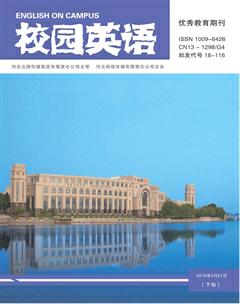An General Analysis on Thomas Hardy’s Pessimism in Wessex Novels
朱丹丹
Introduction
Thomas Hardy (1840-1928) was a famous literary celebrity in the history of British literature. In Hardys 88 years of life, he had experienced the years of the old world and the years of the new world. Hardy was transformed romanticism into realism, but Hardys romanticism was short and he rarely had the representative works of romanticism. So Hardys major works and his mind were still mainly of pessimism. The study of Thomas Hardy in the Chinese and foreign literature was by no means a fresh topic. In the early 1920s, the translation and research of relevant works of Hardy had entered the Chinese vision.
I. The Status of Britain in Mid-19th Century
In the middle of the 19th century, British capitalism force was invading the rural legal system. In Hardys life, the most profound changes also affected the rural life. In 1867, after Hardy returned to the hometown, he spent his life at home, so he was very familiar with the British countryside.
In all the late 19th centurys novelists, Hardys tragic narrative art had the most distinctive and appealing power. Hardys narrative art was full of pessimism color. Hardy felt sad from what suffered by farmers and felt sorry about the degradation of nature. Although Hardy knew that social transformation was ruthless and it was also inevitable. But from time to time, he showed the pastoral scenery of nostalgia, the deepening of the struggle and the jungle rule and the survival of the fittest. Hardy felt so worried. Hardy was heavily influenced by the obvious naturalistic tendency in creation, so he often revealed the fatalistic point of view. In his view, the universe was apathetic and mysterious.
II. The Main Thought Of Thomas Hardy in Wessex Novels
Hardys works were good because some of them vividly reflected the true emotion and thought of him. Wessex Novels had proved that Hardys pessimism thought. When Hardy created this series of novel, he was in ideological transformation period. Therefore, Hardy was more pessimistic to society. Novels overall artistic conception expressed the authors negative thought. The author put his own philosophy thoughts into the works.
Ⅲ. The Significance of Thomas Hardys Pessimism
Though Hardy isolated the agricultural laborer living conditions with the conditions of Britains entire working-class, on the one hand, Hardy discovered a real human character in the middle of the agricultural laborer, recognized and praised the power of ordinary people. On the other hand, he also saw the extreme misery of the people. Tess, for example, the bourgeois ethics thought she was a loose woman. As for Hardy, from the perspective of working people, Tess was a pure woman. He portrayed image with all the good qualities of working women. Such as Jude, his fate had certain social significance. It showed under the unreasonable social system, even Jude was a young farmer, even he had talent, he also failed to live up to his ideals.
Conclusion
On the one hand, Hardy admitted capitalist industrial civilization had already taken the place of patriarchal civilization. On the other hand, he deeply sentimentally attached the simple life and traditional virtue to patriarchal clan century. Hardy hated the hypocrisy of the urban civilization of capitalism. Because of this conflict between emotion and sense, Hardy enhanced the criticism power. Hardy made his idea of fate deepen and wild in the aspect of economy, political and thought. In the novel, Hardy still used words such as “god” and “fate”, but they had different concepts as before. Hardys “god” was no longer above nature, and it existed in the universe and nature. For him and his hero, it was a kind of similar to Schopenhauers philosophy of “will” of the universe. There are some people who treated natural and social rules with old concept of “god” or “fate”. Several contingencies in the works almost consciously explain the fate of the causes and effects events concept.
References:
[1]Alan Durant.Analysis on Thomas Hardy.New York:New York Press,2001.
[2]Beidler,Peter G.Writings on Thomas Hardy.Chengdu:Sichuan University Press,2002
[3]Miler.Literature Collection in 20th Century.New York:Literature Press,1990.
[4]Pearson.Culture Strategy.Beijing:China Social Sciences Press,2000.
[5]吴笛.哈代新论[M].杭州:浙江大学出版社,2009.

